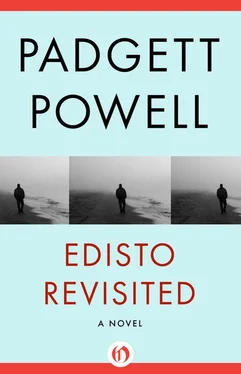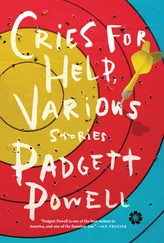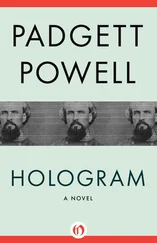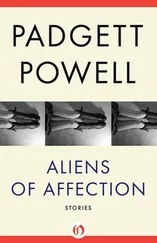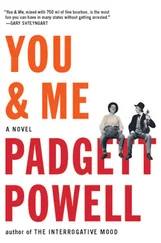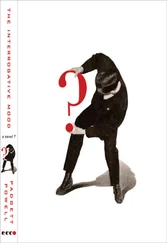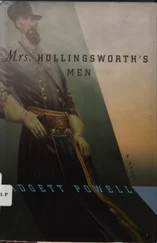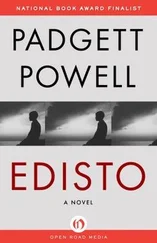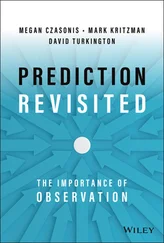I found in my coat pocket — I have noted that the true secrets of the universe are discovered in sport- and suit-coat pockets either during or after drunkenness — a note from Patricia Hod. We were in the habit of giving each other love letters, I guess you’d call them, little scraps of mostly excess sentiment we’d have been too embarrassed to say aloud, things we could at once safely laugh at and believe. She had given it to me a day or two before the walkout, and I had looked at it, glanced at it, during the emergency soup-tureen foster-homing and rearguard retreat and tangled minutiae of fleeing women you don’t want to know you are fleeing — so I had only glanced at it. It was written before she knew there was anything wrong — I thought. But in New Orleans’s Hotel Step 13 beneath a sign prohibiting imaginary conversations, with my shoes on the opposite feet, and getting profoundly homesick for something nice —I kept thinking about Southern Living modern-bathroom ads with toilet bibs matching the bathmats — this note leapt out of my pocket and uncreased itself stiffly and resonated plainly in the hand like a lost biblical tract. “I see,” Patricia Hod had written me two days before I unfairly left her (wanting her, too), “your mother’s face in yours sometimes. Not always. But sometimes. It’s disturbing when you see that in a man’s face.”
That it was. It disturbed me there and then. That she saw that, that she said that, that she had seen it in other men, that it disturbed her in the cases of these other men, that it disturbed her in my case, that my case was not different from that of other men, or was it? (It would be if she saw the face she should have seen in mine: her mother’s, sister to my father.) Was this disturbing mom’s face in one’s man merely the latest case, or was it disturbing for reasons other, maybe better and real reasons: maybe Patricia Hod loved me. This idea winged too near me like a bat in the dark in the fluorescent glare of the Flamingo Bar & Grill. Maybe she was not crazy — I was crazy. This is a notion we all articulate on a daily basis, inspired by a thousand daily things, and I was leery of it, half-drunk on skid row in a town I did not and did not want to understand.
Patricia Hod. Would Patricia Hod have me back? She shouldn’t, that we knew. She possibly couldn’t — gone, etc. But she was crazy! There was hope. I got a beer and eyed the pay phone and deigned not: the prospect of such a call — and to where? Her mother’s house, where her mother drank so much her father shipped her out to sleep with her cousin? To my own house, where I’d left her and where my own mother drank so much she put her up, for me ? — the prospect of such a call was too imaginary. Under the circumstances I thought the sign prohibiting imaginary conversations had been conceived just for me. Beer. Beer was going to have to go, and I was going to have to put my shoes on the right feet, shortly. I got another beer and stretched out my splayed feet and thought about that. Norman Rockwell was going to get up and say, Mr. Burroughs, I’m not taking it anymore. I find finally untenable your acquiescence to the disgusting in human endeavor. Put your pants on, Mr. Burroughs, I am through with you. This was amusing, and a bit sad, but I’d reached the point where I had to concede Mr. Rockwell right.
So I resolved to go home, passing the Jax Beer Brewery and discovering it converted to the Jackson Brewery Mall and selling, among other things, fiberglass pirogues and faux Izod shirts with the alligator replaced by tiny crayfish, and to collect my cousin Patricia.
Oh, Patricia Hod. You are thirty and firm and dazed of head, but you are all of that. You lay with me for a month under the scrutiny of my mother and did not run or whimper or rail or fret. You lay there like a man. I ran like a boy, but we are going to overlook all of that. That is to be overlooked. Overlook that. Overlook me. Look me over. Look at me, Patricia Hod. I come to you ruined and smiling and smart. You can do much much much worse than this, Patricia Hod. I can put my chinos on one leg at a time, like everybody else (though I cannot work for certain boys in Atlanta wearing them like everybody else), or I can jump into them like a fireman, or I can jump out of my chinos like a man on fire. I and my chinos are changeable, Patricia Hod.
Outside the Flamingo Bar & Grill it began to rain. The marquee was lit by ordinary incandescent lightbulbs, which stuck nakedly out of individual porcelain sockets. I wondered how many of them lit when the switch was thrown. It was a simple matter to replace the blown bulbs. A step-ladder, some bulbs, a gentleman sober enough to stand and deliver. The world was mine. The world is anybody’s if you will square off and hit it.
This is something I have learned, and I think I have learned it in time. I have learned it, I think, and continue to learn it, I think, from women.
I THOUGHT OF THE ways you approach the abandoned. It is not unlike the rabid: will they hide from you or charge? I thought the least advisable strategy would be weeping for forgiveness. At the other end of the spectrum of the untenable would be promising the abandoned forgiveness. Somewhere in the resonant middle ground was a posture of defiant culpability that offered restitution of the way it was before. I was not looking forward to this articulation before a woman who had drowned cats and set fires before subsiding into lost-love catatonia in London. On the other hand, and this was partly why Patricia Hod was looming so attractive, you could not imagine approaching an ingénue under these terms. She’d see the matter too clearly: you left. The End. You wanted a woman who saw your leaving as a matter of necessary and sophisticated contradiction: rose mole stipple upon a trout; oh, brindled cow. Oh, fall down. Then get up. You needed a Calamity Jane for these affairs, or Annie Oakley. Dale Evans was out. Dale would wait for Roy, and Roy, bless his heart, would never be short, late, wrong, impotent, drunk, or out of key. I will woo but I will not croon.
I seized the pay phone and called Patricia Hod’s house in Columbia. Her mother, my aunt who goes on such vicious toots that the attending alcoholics seek medical counsel for her, answered. “Well, well, Marster Simons.” This is an upcountry slur of the low country. “How do you do?”
“I do fine, Aunt Sasa. Is Patricia there?”
“I thought that might be what you’d ask. Have you ever seen Pat Boone? I can’t stand him.”
I heard a loud, shouted voice in the background: “DON’T SAY THAT! YOU JUST DON’T KNOW HIM WELL ENOUGH!”
My aunt, apparently responding to this, said, “What?”
And the voice said, somewhat less loud: “You just don’t know him well enough.”
“Who?” my aunt asked.
“Whoever you said you can’t stand,” the voice said.
“I said ,” my aunt said, “I can’t stand Pat Boone .”
“Oh,” said the voice, which I’d now identified as my uncle’s. “I thought you meant someone you knew.”
“Jesus Christ Almighty,” my aunt said, returning her attention to the phone. “Patricia’s not here. She’s on a date .” My aunt zinged this in like an Amazon sharpshooter. It was her way of saying she had the whole story, the whole score, and had taken a position in it, apparently, not surprisingly on Patricia’s side. But this was complex: Patricia and I together was likely to be something she would, against the rest of the family excepting my mother, side with, so she would probably not render Patricia altogether unavailable to me. She would just tender some difficulty. “She’s out with a fellow named Johnny Ham,” she said, and I heard her take a drink. Then she whispered, “I can’t stand him.”
Читать дальше
